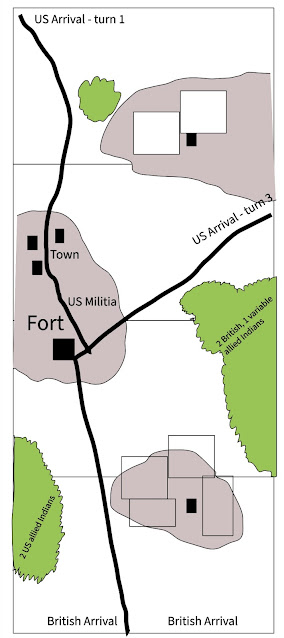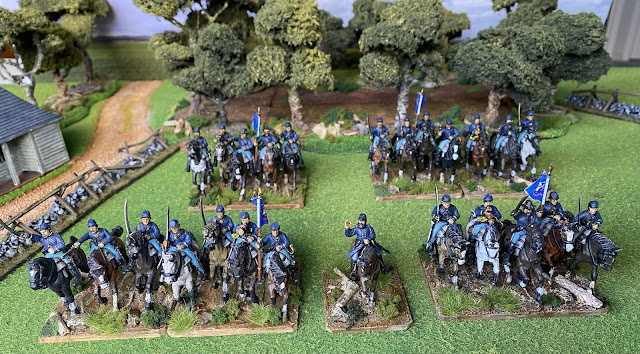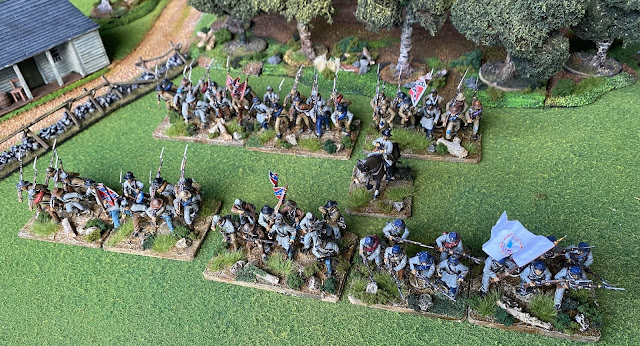Yesterday (Sunday) while large parts of the globe are facing a worsening situation with COVID-19 seven of us got together on a hot and sunny day to play what could well be our last game for 2020 - a War of 1812 game.
Set somewhere in upstate New York stood a small town of significance because it held a good supply of grain. The place was guarded by a brigade of militia with a n antiquated gun. The town itself was protected by a blockhouse (with a touch of irony the game was played in the Auckland suburb of Blockhouse Bay about 800 meters away from the site of a blockhouse built during the New Zealand War in 1860 to protect the portage track between the east and west harbours of the modern city).
Intent of securing the grain the British mounted an expeditionary force of four brigades (19 battalions and four batteries) of regulars and Canadian militia. Upon hearing of the size of the approaching British force the militia commander called on four nearby regular brigades (14 battalions and 4 batteries) for help.
The British would arrive on the table in the position marked on the map on turn 1. The Americans would bring one column on turn 1 and the other on turn three. In the woods were five units of Indians, two allied the Americans and two to the British. The allegiance of a fifth Indian unit will be determined when contacted by rolling 1xD6 (456 British, 123 American).
The advance started slowly with the British working their way forward slowly, feeling out the woods as they went. They soon contacted a group of American allied Indians that roughly handled one battalion before they were shot to pieces by two converging British units. Then the second American allied unit was found. It too what defeated and sent packing, but not before it had delayed the British infantry for three turns. Meanwhile in the other wood the British found two of their own allied Indian groups and then when the found the fifth, it allied itself to them too.


The action started in front of the fort with the old gun popping away at the British, but doing little damage. Unknown to the militia commander the gun had the potential to burst after three shots and although it failed to burst, disaster struck the militia when a shot from a British howitzer set fire to the blockhouse and the militiamen failed to extinguish the flames. The fire quickly blazed out of control and the place was abandoned.
Meanwhile the Americans formed their main line perpendicular to the town intend in drawing the British on to them, using the militia (as the regulars delightfully described it) as “the speed bump to slow the British advance”.
The British infiltrated the woods opposite the town, but when they came to the edge found an American brigade drawn up facing them and were unwilling to exit the woods in the face of this force. One of the US regiments entered the woods to try to force the issue, but only got itself embroiled into an inconclusive fight that lasted for the rest of the game.
The British were now compelled to funnel themselves between the woods but soon found that the US artillery dominated the ground and although some battalions managed to make some initial headway against the militia, when one of the British brigades fell apart the game was up and they were obliged to concede.
It was a pleasant way to spend a lazy Sunday.



































